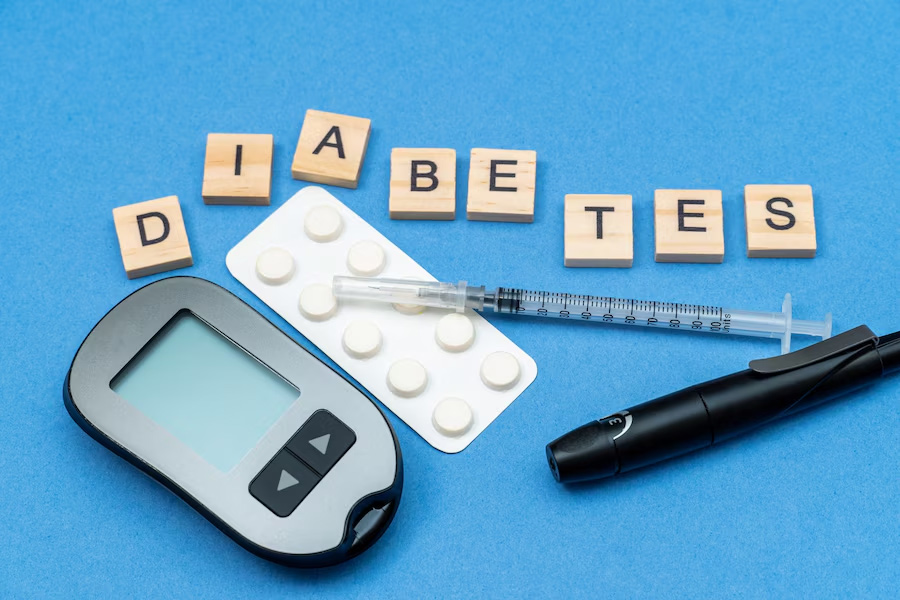
In recent years, diabetes has emerged as a significant health concern for Indians and especially those in their 30s. Once considered a disease of old age, Type 2 diabetes is now affecting younger populations due to shifting lifestyles, urbanisation, and dietary habits. For Gen Z, understanding these risks and adopting preventive measures early is crucial to staying ahead of the curve.
Table of Content:-
Why Are Young Indians At Risk Of Diabetes?
Our expert, Dr Shrey Kumar Srivastav, Senior Consultant, Sharda Hospital - Noida shared, “India is often referred to as the ‘Diabetes Capital of the World,’ with a large percentage of the population affected by Type 2 diabetes. Here are some key factors contributing to the rising prevalence among young Indians:
1. Sedentary Lifestyles
The digital era has brought convenience but also physical inactivity. Prolonged hours in front of screens and limited physical movement increase the risk of insulin resistance.
2. Unhealthy Diets
Fast food, sugary beverages, and processed snacks are staples for many young Indians, especially urban dwellers. These foods are high in calories and low in essential nutrients, contributing to obesity and metabolic imbalances.

Also Read: Love Dark Chocolate? Good News, It Can Reduce Your Risk Of Type 2 Diabetes
3. Stress and Mental Health
The pressures of modern careers, financial instability, and academic stress are significant contributors to chronic stress, which is linked to hormonal imbalances that can affect blood sugar levels.
4. Sleep Deprivation
Irregular sleep patterns and insufficient rest—common among the younger population—interfere with metabolism and insulin regulation.
5. Family History and Genetic Predisposition
With a genetic predisposition to diabetes, many Indians have an inherent risk. Coupled with an unhealthy lifestyle, this risk increases manifold.
Signs of Early-Onset Diabetes
Young individuals should look out for these early symptoms:
Unexplained weight loss
Increased thirst and frequent urination
Fatigue and irritability
Blurred vision
Slow-healing wounds
Also Read: Diabetes And Ageing: Expert Explains The Link Between Age And Diabetes Symptoms And Progression
Prevention Tips for Gen Z and Millennials
Dr Srivastava shared a few tips for Gen Z and Millennials to mitigate the risk of diabetes. These include:
1. Adopt a Balanced Diet
Incorporate whole grains, lean proteins, healthy fats, and fiber-rich foods.
Limit sugary drinks and refined carbohydrates.
2. Stay Physically Active
Aim for at least 30 minutes of moderate exercise daily, such as walking, cycling, or yoga.
Include strength training to improve muscle sensitivity to insulin.

3. Manage Stress
Practice mindfulness techniques like meditation or deep breathing.
Take regular breaks and prioritise work-life balance.
4. Get Regular Health Check-ups
Regular blood sugar monitoring can help detect prediabetes early.
Discuss family history with your doctor to tailor preventive strategies.
5. Prioritise Sleep
Aim for 7–8 hours of quality sleep every night.
Maintain a consistent sleep schedule.
6. Quit Smoking and Limit Alcohol
Both smoking and excessive alcohol consumption are linked to insulin resistance and should be minimised.
Bottomline
Diabetes in your 30s can feel like an uphill battle, but awareness and proactive measures make a significant difference. Gen Z and millennials, with their tech-savviness and access to information, have the tools to reverse this alarming trend. Small, consistent lifestyle changes, coupled with regular medical guidance, can ensure a healthier, diabetes-free future.
Share your thoughts! What lifestyle changes have you made to prevent diabetes? Let us know here.
Also watch this video
How we keep this article up to date:
We work with experts and keep a close eye on the latest in health and wellness. Whenever there is a new research or helpful information, we update our articles with accurate and useful advice.
Current Version